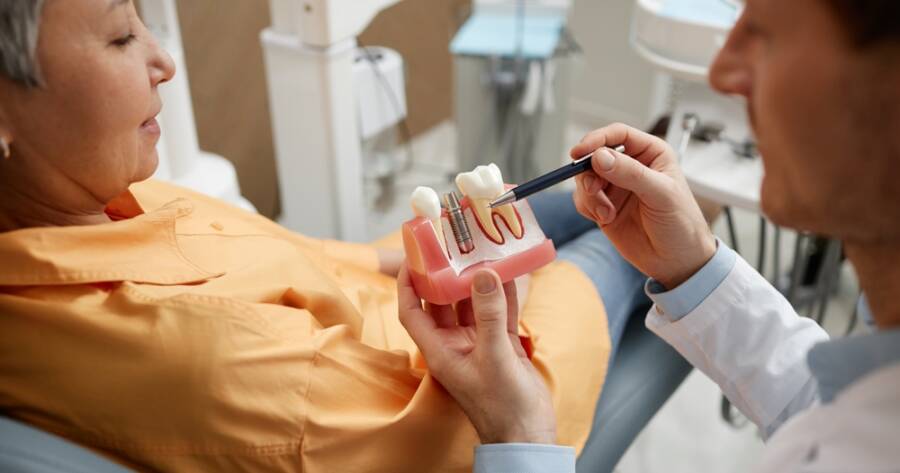The cost of dental implants can be a significant concern for many individuals seeking to restore their smiles. Understanding various financing options and strategies can help you improve your oral health. Let’s explore five ways to make dental implants more affordable.
What Is the Cost of Dental Implants?
The cost of dental implants can vary significantly based on several factors, including the complexity of the procedure, the materials used, and the geographical location of the dental practice. Generally, dental implants involve multiple components, such as the implant itself, the abutment, and the crown, which can contribute to the overall expense.
Additionally, the experience and qualifications of the dental professional performing the procedure can influence the cost. Highly skilled specialists may charge more for their services, reflecting their expertise and the quality of care provided. Patients should consider the long-term benefits of dental implants, such as improved oral health and functionality, when evaluating the cost.
1) Dental Insurance Plans
One of the first options to explore when considering dental implants is insurance coverage. Many dental insurance plans offer partial coverage for implant procedures, although coverage may vary based on the type of plan. 1 Some policies will pay for the crown portion of the implant, while others may cover part of the surgical costs.
It’s important to review your insurance policy carefully to understand what is covered. Additionally, some insurance plans may require a waiting period before covering implants, so plan accordingly. If your current insurance doesn’t cover implants, you may want to consider upgrading to a plan that includes this benefit.
2) Financing Options and Payment Plans
Many dental offices offer financing options or payment plans to help spread out the cost of implants over time. This allows patients to make monthly payments instead of paying the full amount upfront, making it easier to afford the procedure.
Third-party financing companies, like CareCredit or LendingClub, specialize in medical and dental expenses. These companies offer loans with various terms and interest rates, depending on your credit score. Some financing plans even offer interest-free periods, making it a cost-effective way to manage the expense of implants.
Before committing to a financing option, make sure to read the terms carefully and understand any interest rates or fees that may apply.
3) Dental Discount Plans
Dental discount plans, sometimes called dental savings plans, are another way to reduce the cost of dental implants. These plans are not insurance, but they offer discounted rates for various dental services, including implants.
By joining a dental discount plan, you pay an annual membership fee, which grants you access to reduced rates at participating dentists. Discounts on dental implants through these plans can range from 10% to 60%, depending on the provider and plan. This can significantly reduce the overall cost of your treatment.
Many dental discount plans also cover other services like cleanings, crowns, and fillings, so they can offer ongoing savings for your dental care needs.
4) Look for Dental Schools or Teaching Clinics
Another option to afford dental implants is to seek out dental schools or teaching clinics. There are many dental schools in the U.S. that offer discounted rates on procedures, including implants, as part of their training programs. 2 The procedures are performed by dental students under the supervision of experienced professionals, ensuring that the work is done to high standards.
The cost savings at dental schools can be substantial, sometimes reducing the price by up to 50% compared to private practices. While this option may require more time for appointments, it is an excellent way to receive quality care at a lower cost.
5) Health Savings Accounts (HSAs) or Flexible Spending Accounts (FSAs)
If you have access to a Health Savings Account (HSA) or a Flexible Spending Account (FSA) through your employer, these can be valuable tools for affording dental implants. Both HSAs and FSAs allow you to set aside pre-tax income for medical expenses, which can be used to pay for dental procedures like implants.
Using pre-tax dollars to pay for dental implants can save you money by reducing your taxable income. Additionally, many employers contribute to HSAs, providing extra funds to help cover medical expenses. Be sure to check the rules for your specific HSA or FSA, as there may be limits on how much you can contribute or deadlines for using the funds.
Learn More About Dental Implants
While the initial investment may seem high, dental implants are designed to last for many years, making them a cost-effective solution in the long run.
For those interested in understanding more about dental implants, including their benefits, risks, and the latest advancements in technology, numerous resources are available. Consulting with dental professionals and accessing reputable platforms can provide valuable insights into the world of dental implants.
